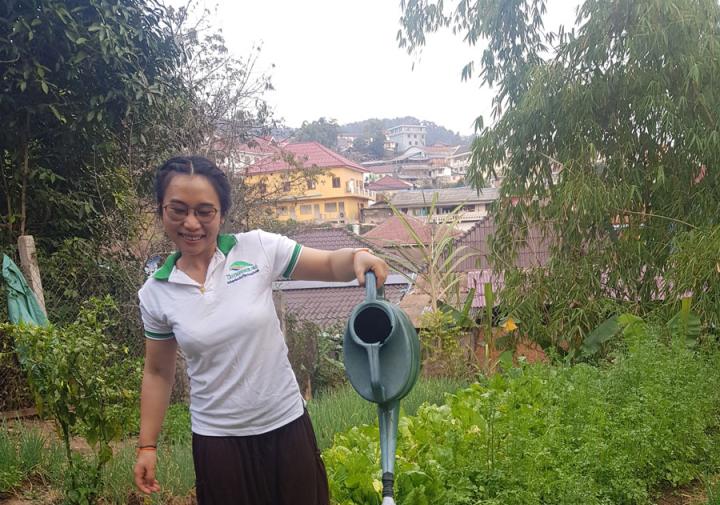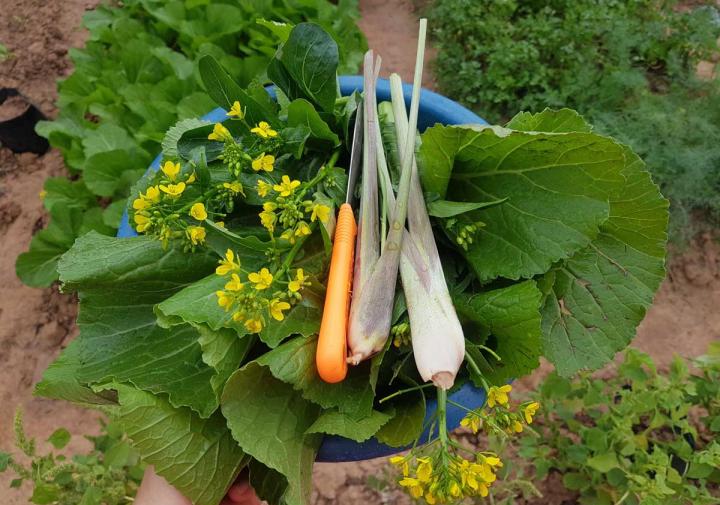For houses that have free space, instead of growing lawns or decorative trees/flowers, we can plant vegetables, that are not only beautiful but also edible. We can start small by planting our favorite vegetables and expand afterwards. For example, my favorite vegetables are mint, basil and onions, and thus, I planted them first. Then, I expanded my garden to cover a wide variety of vegetables such as bokchoy, tatsoi, legumes, peppers, salad and more. For those who live in apartments with limited spaces, you can consider whether there are some free spaces with sunlight such as balconies or rooftops. Some communities also have community gardens where you can share space for individual gardens.
Home gardens produce fresh organic food
I live in the capital city of Laos, Vientiane, and like many urban cities, it is more common for people to buy vegetables. However, such vegetables are expensive, and often, we lack knowledge of where the food come from. Because I planted a vast variety of vegetables, the garden provides day-to-day access to fresh and different vegetables. The farming method is organic, which translated into good food and richer nutrients. In fact, the significance of home gardening in urban areas for food and nutrient security has been well-studied, but we need more participation in it.
Home gardening can improve physical and mental health
There is growing scientific evidence that gardening is a cost-effective way to maintain physical and mental health. Each day, I spend between 15 to 30 minutes taking care of the garden before or after work. After long hours of staring at a computer screen, taking some time off for gardening is a great way to obtain physical exercise. Stretching and bending to rake or dig soil or lift somethings increase body flexibility, strengthen joints and improve the overall body strength. In addition, gardening is good for mental health because it makes us feel focused, peaceful, and content through exposure to plants and green space and increased focus on immediate tasks.
Home gardening is good for the environment
Every home undeniably produces some degree of organic waste such as food scraps and yard waste. With home gardening, we can circulate household organic waste to nurture soil to produce more food. This can be done in different ways such as putting the organic waste directly around plants and covering it with some soil on top or composting before applying the compost to the plants. This way, we can maintain soil nutrients, produce food locally and get benefits from the favorable microenvironment the garden produced.
Home gardening promotes science teaching
Home gardens are spaces for learning. Kids and adults can learn about soil, plants and animals by observation, discovering and understanding through learning by doing. The growing process of different plants from their seed stage to the maturity stage can be observed. Gardeners can try different methods of cultivation and take notes on different outcomes. Gardens can be designed in different fun ways, which provide a safe space for learning and new discovery. For these reasons, I encourage home gardeners to involve all household members, especially children.
Most of us have been adversely affected in different ways by disrupted food chains, rising food prices, and increasing risks of food production due to climate change. It is time that all of us take actionable steps to address such challenges, and we can all start with home gardening.








